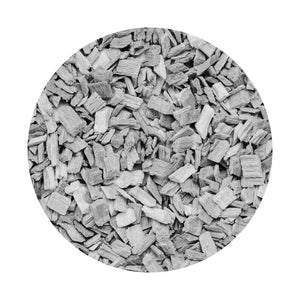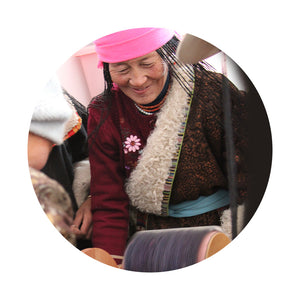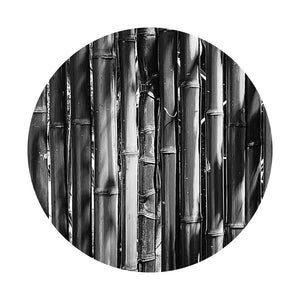We are dedicated to working with sustainable natural fibers.
These selections emphasize comfort and function, bringing performance-enhancing qualities such as breathability, moisture-wicking, and antimicrobial properties.
Get to know more about our materials:


Lyocell
Soft / Breathable / Moisture Wicking
Lyocell fibers are smooth and uniform, with a silky texture prized for its durability and drape. The porous structure of the fiber allows air to circulate freely through the knit. Moisture that is absorbed from the skin is distributed throughout the fiber's structure rather than remaining on the surface. The material never feels damp or sticky.
Sustainability
Lyocell is derived from wood pulp, typically renewable eucalyptus, or bamboo forests. Its production involves an eco-friendly closed-loop process that minimizes waste by recycling solvents and water, while also requiring fewer chemicals and less energy compared to cotton or polyester.
Yak Wool
Warmth
The extreme climate conditions in which yaks thrive lend remarkable qualities to their wool. Unlike cashmere or sheep's wool, yak fibers are hollow. This is a unique property more commonly seen in synthetic materials like polyester that are designed to provide lightweight insulation. Air pockets in the fiber provide insulation in extreme cold and cool in heat.
Soft / Breathable / Moisture Wicking / Antimicrobial
Yak wool is renowned for its luxurious softness akin to cashmere. It is 120% more breathable than its counterpart, facilitating airflow and moisture absorption for enhanced comfort. Its fine fibers efficiently wick away moisture, remaining dry to the touch even after absorbing a third of its own weight in moisture. Natural antimicrobial properties actively combat bacteria, reducing odors and eliminating the need for frequent washing.

Sustainability
We source yak wool from traditional nomadic herding communities in Tibet, Qinghai, and Sichuan. During spring, as the yak's downy undercoat begins to shed, they are gently combed by hand to collect about 3.5oz (100g) of fibers per animal.
While a high demand for cashmere has caused environmental damage with up to 90% of Mongolian land suffering from desertification due to intensive goat grazing, yaks represent a different, more sustainable path. With shorter tongues that don't pull grass out by the roots as they graze, coupled with the tradition of nomadic herding, yaks help preserve the ecosystem in which they roam.

Bamboo
Soft / Breathable / Antimicrobial
Bamboo fibers, often seen in baby clothing and bedding, possess a naturally soft and breathable texture due to their fine and smooth structure. It also contains a natural antimicrobial bio-agent "Bamboo kun", which inhibits the growth of bacteria and other microbes on the surface of bamboo fibers. This natural protection helps to keep bamboo fabric fresh and odor-free even after extended wear.
Sustainability
Bamboo has inherent eco-friendly qualities, such as rapid growth and minimal need for water and pesticides; and unlike other plants used for fiber production, bamboo replenishes itself rapidly without the need for replanting. Its production involves an eco-friendly closed-loop process that minimizes waste by recycling solvents and water.



